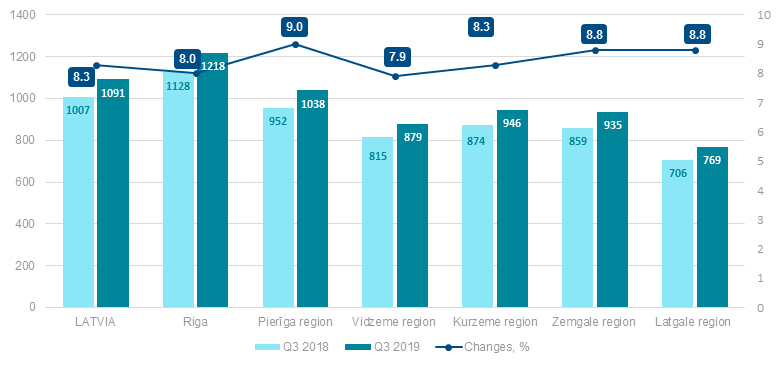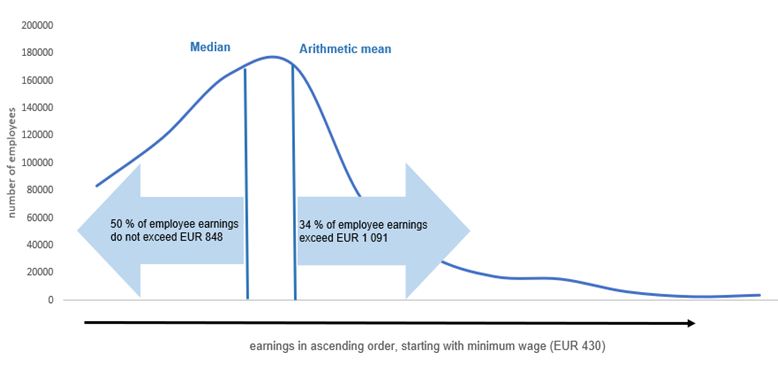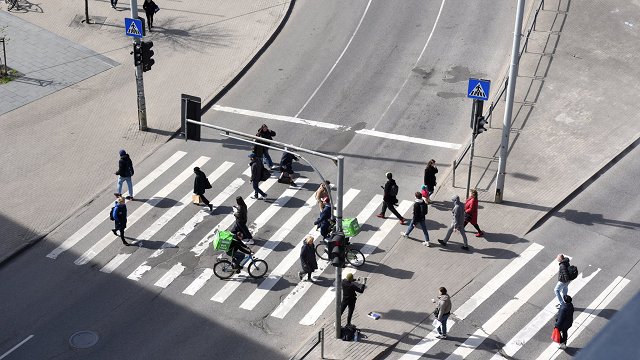In the first and second quarters, the growth rate was slower – 7.8 % – suggesting that the pace of increase continues to rise as a shortage of suitable workers starts to make itself felt.
Compared to the second quarter of 2019, in the third quarter of 2019 gross wages and salaries grew by 0.7 %.
Average net wages and salaries (calculated based on the labour taxes applicable at workplace) constituted EUR 801 in the third quarter. Over the year, net earnings rose by 7.7 %, while compared to the second quarter of 2019 they rose by 0.3 %.
Considering annual consumer price growth of 2.9 %, the real increase in net wages and salaries comprised 4.7 %.
In the third quarter, median gross wages and salaries constituted EUR 848, and compared to the 3rd quarter of 2018 (EUR 779) they grew faster than mean arithmetic earnings (rise of 8.8 %). Over the quarter, net median earnings (after taxes) comprised EUR 623 and rose by 8.3 % over the year.
Median wages are calculated based on the information available in statistical surveys and administrative data of the State Revenue Service.
Median is an average indicator located in the middle of employee earnings sorted in an ascending or descending order. As median, compared to the mean arithmetic earnings, is not influenced by extremely high or low wages and salaries, it reflects typical earnings more accurately, the CSB said.
The annual increase rate was similar in both the public and private sectors – 8.5 % and 8.4 %, respectively. Average wages and salaries in general government sector, which includes central and local government institutions, as well as enterprises controlled and financed by the central and local government, grew to EUR 1 081 or by 8.9 %.
Wages in and around Rīga remain substantially higher than in the rest of the country.































